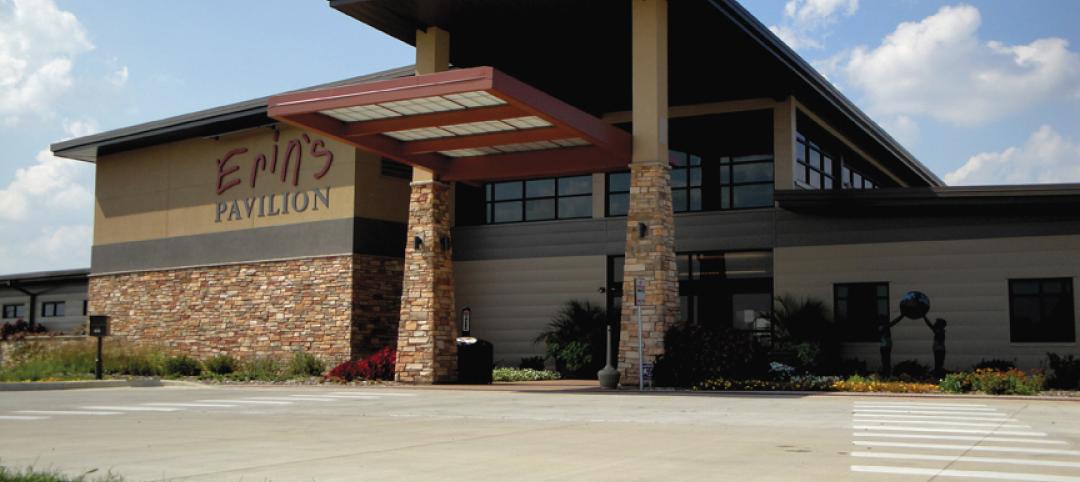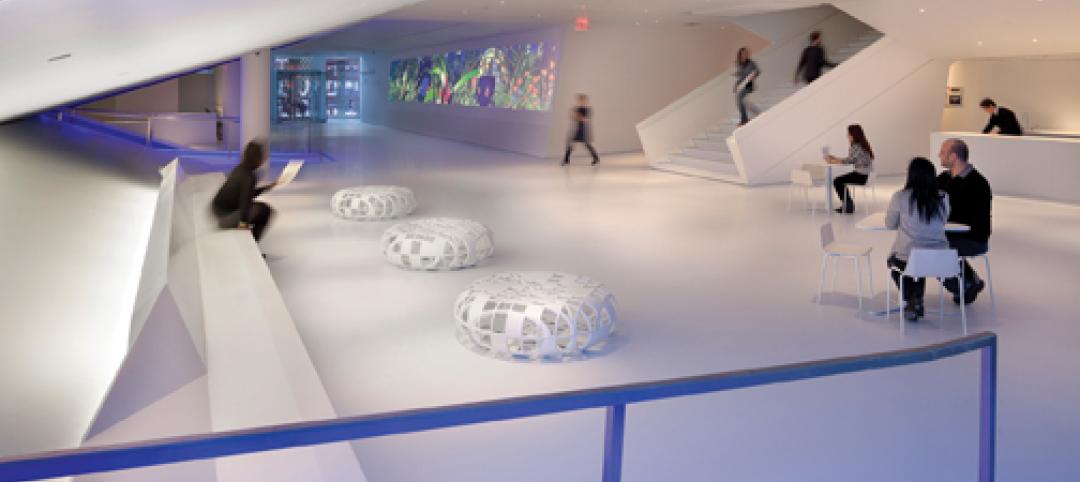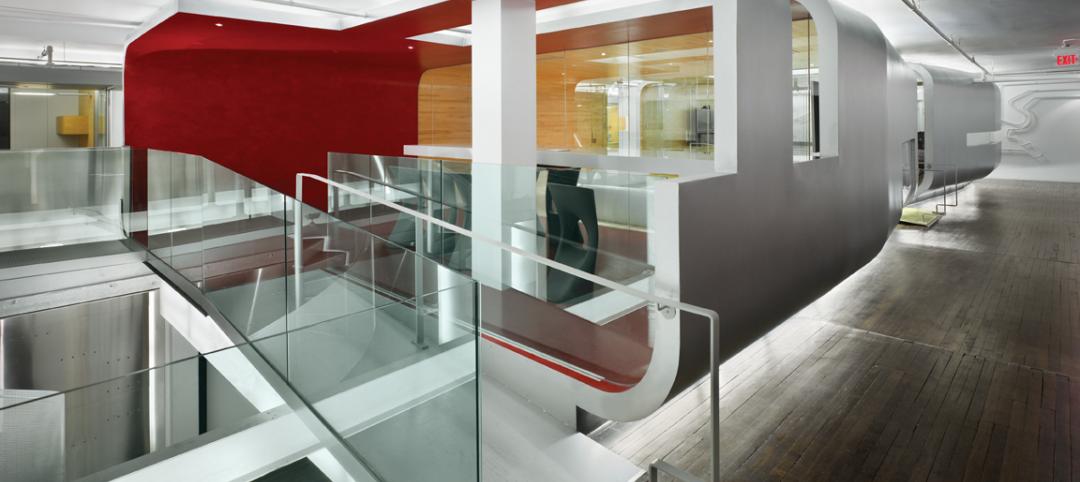The Board of Directors of the American Institute of Architects (AIA) voted to posthumously award the 2017 AIA Gold Medal to Paul Revere Williams, FAIA, whose portfolio of nearly 3,000 buildings during his five-decade career was marked with a number of broken barriers. The Gold Medal honors an individual whose significant body of work has had a lasting influence on the theory and practice of architecture. Williams’ legacy will be honored at the 2017 AIA National Convention in Orlando.
Williams, the first African-American architect to receive the AIA Gold Medal, was born in Los Angeles in 1894. He was orphaned by the age of four and was later raised by a foster mother who valued his education and encouraged his artistic development. Despite a high school teacher’s attempts to dissuade him from pursuing architecture for fear that he wouldn’t be able to pull clients from the predominantly white community while the black community would not sustain his practice, Williams persevered.
Williams garnered accolades in architectural competitions early in his career while developing tactics like rendering his drawings upside down so that his white clients could view his work from across the table rather than by sitting next to him. Williams was the first black architect to become a member of the AIA, and, later, the first black member to be inducted into the Institute’s College of Fellows. Williams opened his practice in the early 1920s when Southern California’s real estate market was booming. His early practice focused both on small, affordable houses for new homeowners and revival-style homes for his more affluent clients.
Williams’ practice expanded and among the 2,000 homes he designed included graceful private residences for legendary figures in business and entertainment such as Lucille Ball and Desi Arnaz, Lon Chaney, Frank Sinatra, and Barron Hilton.
While Williams was more than comfortable with the historical styles endemic to Southern California, his fluency in modernism is reflected in the work outside of his residential practice. Among his number of schools, public buildings, and churches are American architectural landmarks, including the Palm Springs Tennis Center (1946) designed with A. Quincy Jones, the space age LAX Theme Building (1961) designed with William Pereira, Charles Luckman, and Welton Becket, and his 1949 renovation of the iconic Beverly Hills Hotel. Eight of Williams’ works have been named to the National Register of Historic Places.
Williams, who passed away in 1980 is the 73rd AIA Gold Medalist. In recognition of his legacy to architecture, Williams’ name will be chiseled into the granite Wall of Honor in the lobby of the AIA headquarters in Washington, D.C.
Related Stories
| Apr 14, 2011
USGBC debuts LEED for Healthcare
The U.S. Green Building Council (USGBC) introduces its latest green building rating system, LEED for Healthcare. The rating system guides the design and construction of both new buildings and major renovations of existing buildings, and can be applied to inpatient, outpatient and licensed long-term care facilities, medical offices, assisted living facilities and medical education and research centers.
| Apr 13, 2011
National Roofing Contractors Association revises R-value of polyisocyanurate (ISO) insulation
NRCA has updated their R-value recommendation for polyisocyanurate roof insulation with the publication of the 2011 The NRCA Roofing Manual: Membrane Roof Systems.
| Apr 13, 2011
Professor Edward Glaeser, PhD, on how cities are mankind’s greatest invention
Edward Glaeser, PhD, the Fred and Eleanor Glimp Professor of Economics at Harvard University and director of the Taubman Center for State and Local Government and the Rappaport Institute for Greater Boston, as well as the author of Triumph of the City: How Our Greatest Invention Makes Us Richer, Smarter, Healthier, and Happier, on how cities are mankind’s greatest invention.
| Apr 13, 2011
Southern Illinois park pavilion earns LEED Platinum
Erin’s Pavilion, a welcome and visitors center at the 80-acre Edwin Watts Southwind Park in Springfield, Ill., earned LEED Platinum. The new 16,000-sf facility, a joint project between local firm Walton and Associates Architects and the sustainability consulting firm Vertegy, based in St. Louis, serves as a community center and special needs education center, and is named for Erin Elzea, who struggled with disabilities during her life.
| Apr 13, 2011
Virginia hospital’s prescription for green construction: LEED Gold
Rockingham Memorial Hospital in Harrisonburg, Va., is the commonwealth’s first inpatient healthcare facility to earn LEED Gold. The 630,000-sf facility was designed by Earl Swensson Associates, with commissioning consultant SSRCx, both of Nashville.
| Apr 13, 2011
Office interaction was the critical element to Boston buildout
Margulies Perruzzi Architects, Boston, designed the new 11,460-sf offices for consultant Interaction Associates and its nonprofit sister organization, The Interaction Institute for Social Change, inside an old warehouse near Boston’s Seaport Center.
| Apr 13, 2011
Expanded Museum of the Moving Image provides a treat for the eyes
The expansion and renovation of the Museum of the Moving Image in the Astoria section of Queens, N.Y., involved a complete redesign of its first floor and the construction of a three-story 47,000-sf addition.
| Apr 13, 2011
Duke University parking garage driven to LEED certification
People parking their cars inside the new Research Drive garage at Duke University are making history—they’re utilizing the country’s first freestanding LEED-certified parking structure.
| Apr 13, 2011
Red Bull Canada HQ a mix of fluid spaces and high-energy design
The Toronto architecture firm Johnson Chou likes to put a twist on its pared-down interiors, and its work on the headquarters for Red Bull Canada is no exception. The energy drink maker occupies 12,300 sf on the top two floors of a three-story industrial building in Toronto, and the design strategy for its space called for leaving the base building virtually untouched while attention was turned to the interior architecture.
| Apr 13, 2011
Former department store gets new lease on life as MaineHealth HQ
The long-vacant Sears Roebuck building in Portland, Maine, was redeveloped into the corporate headquarters for MaineHealth. Consigli Construction and local firm Harriman Architects + Engineers handled the 14-month fast-track project, transforming the 89,000-sf, four-story facility for just $100/sf.














